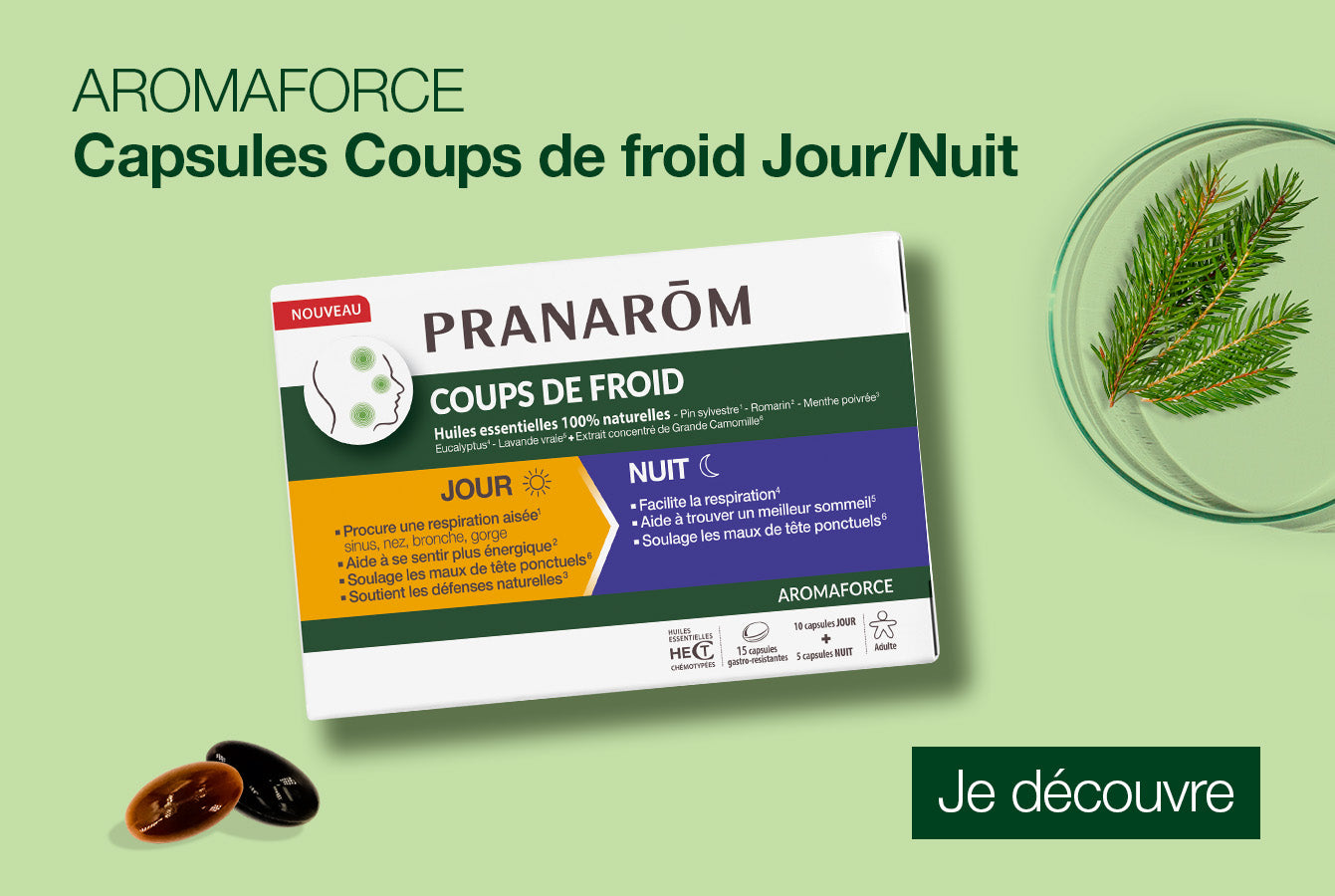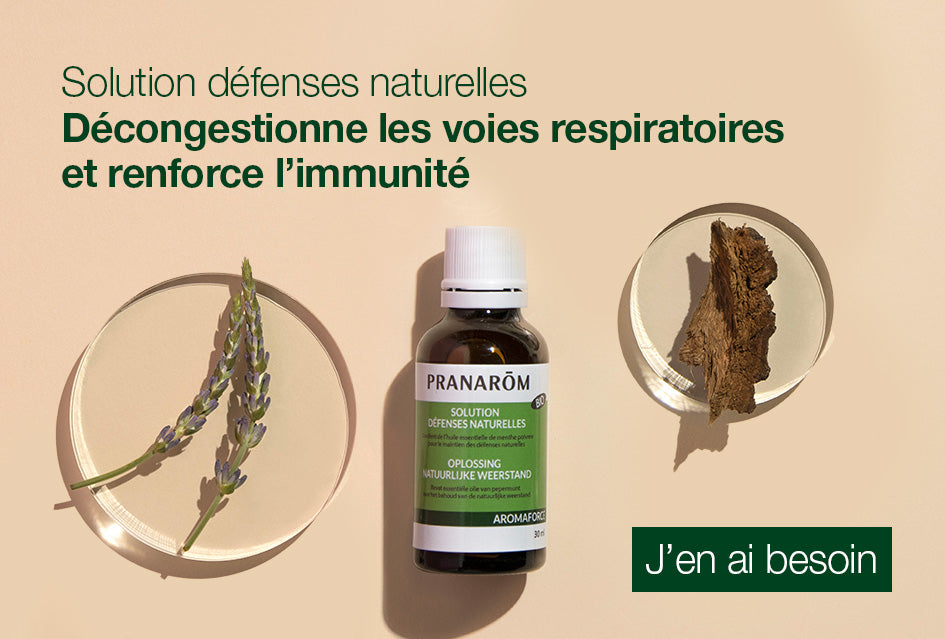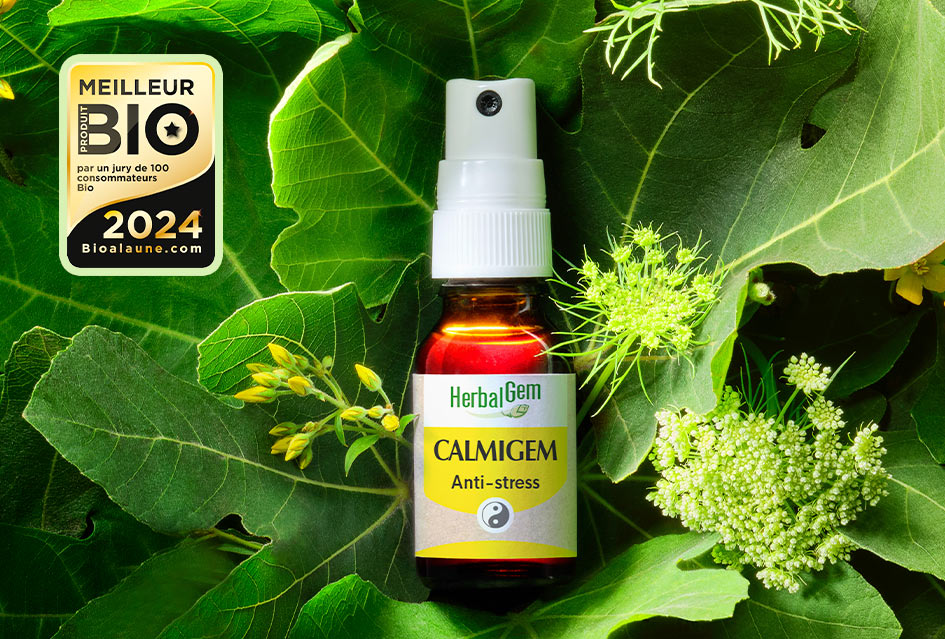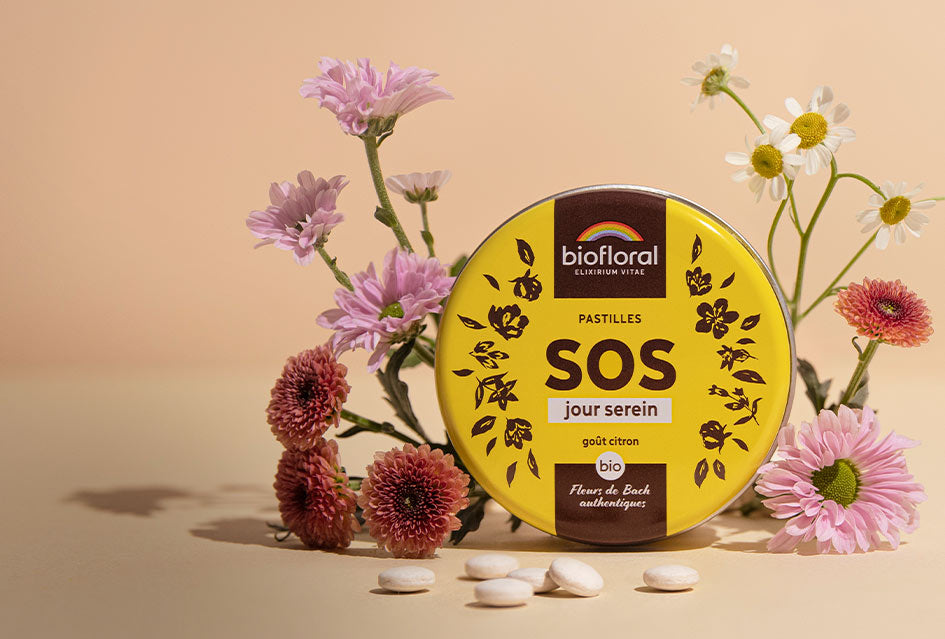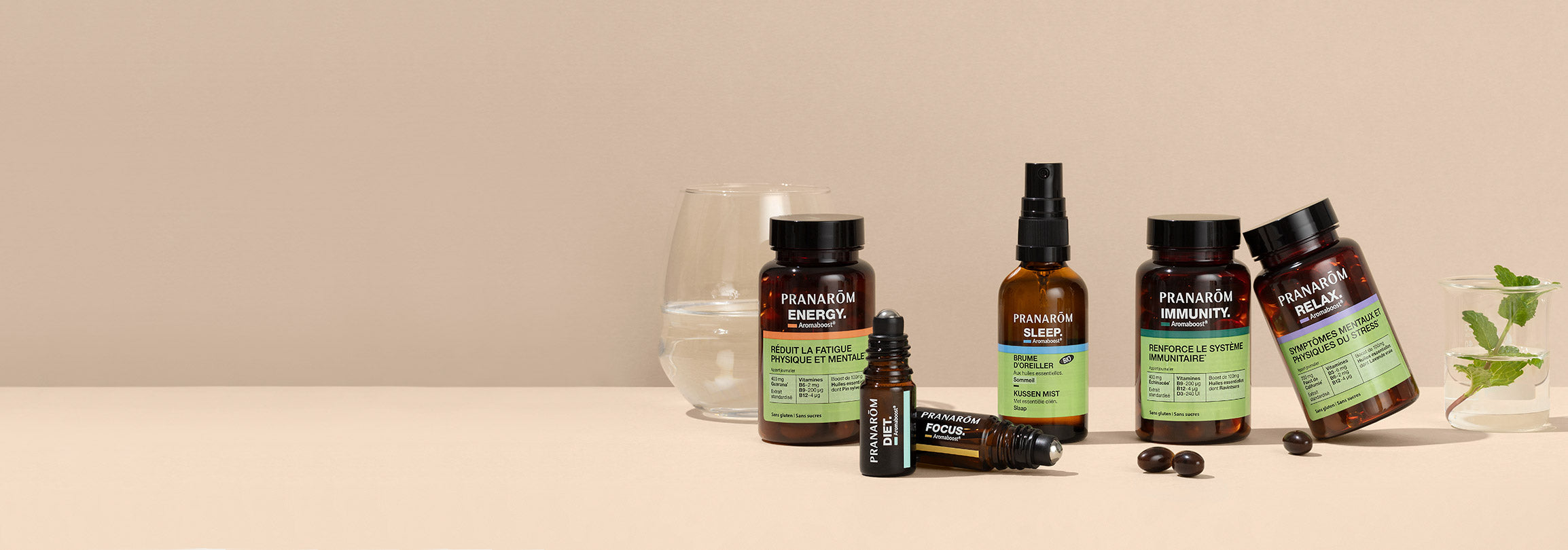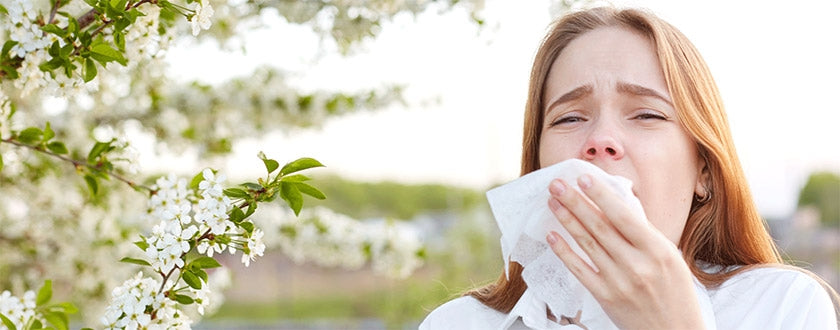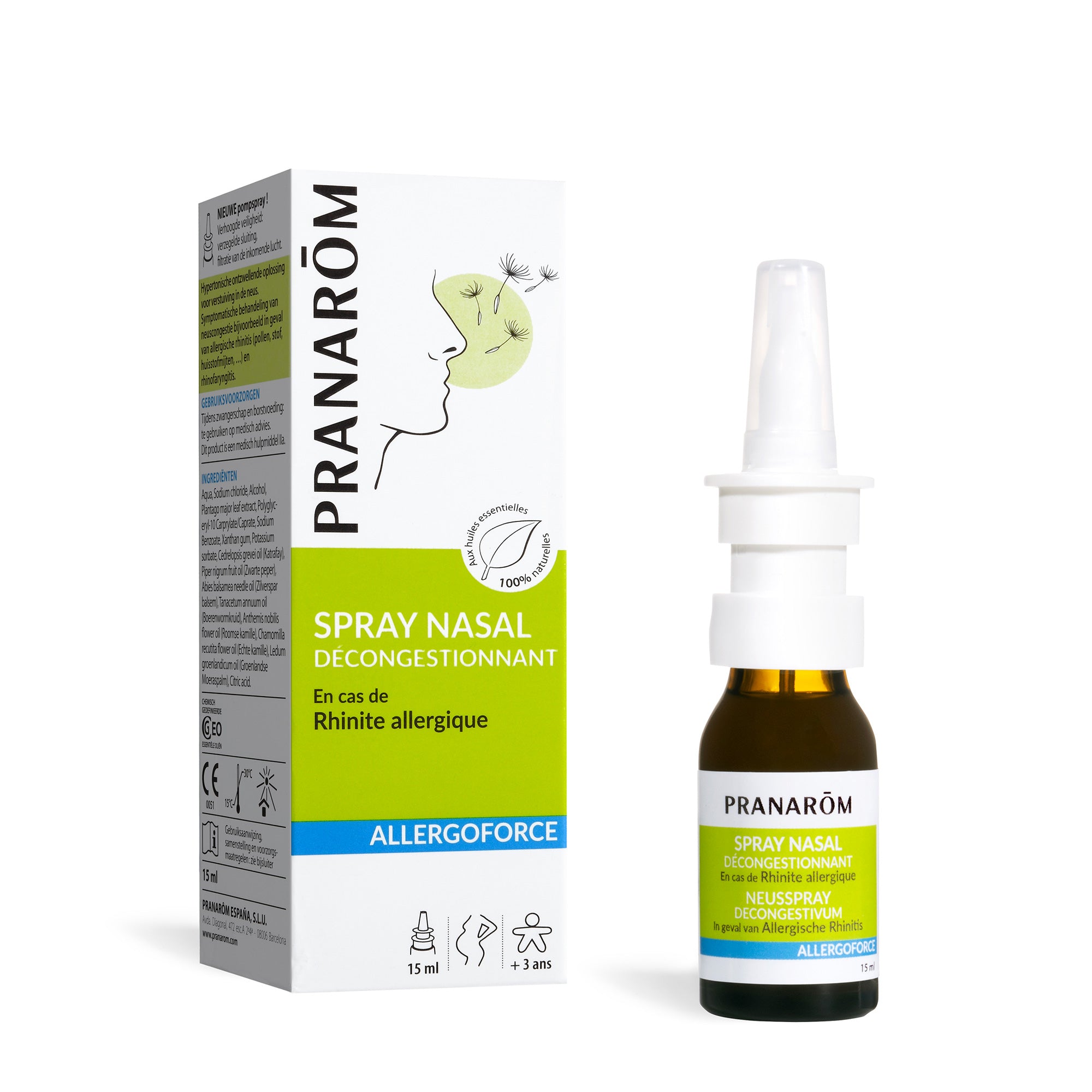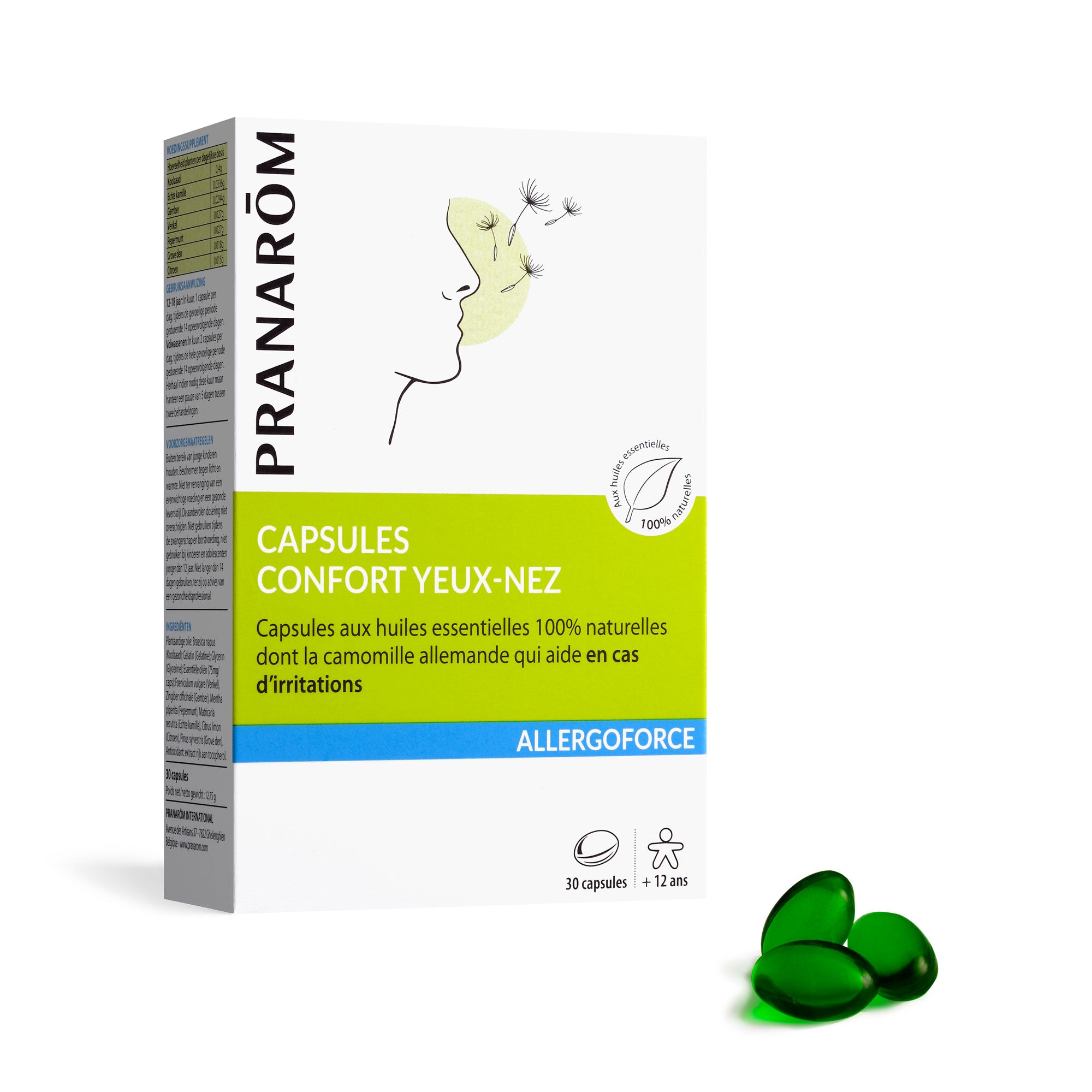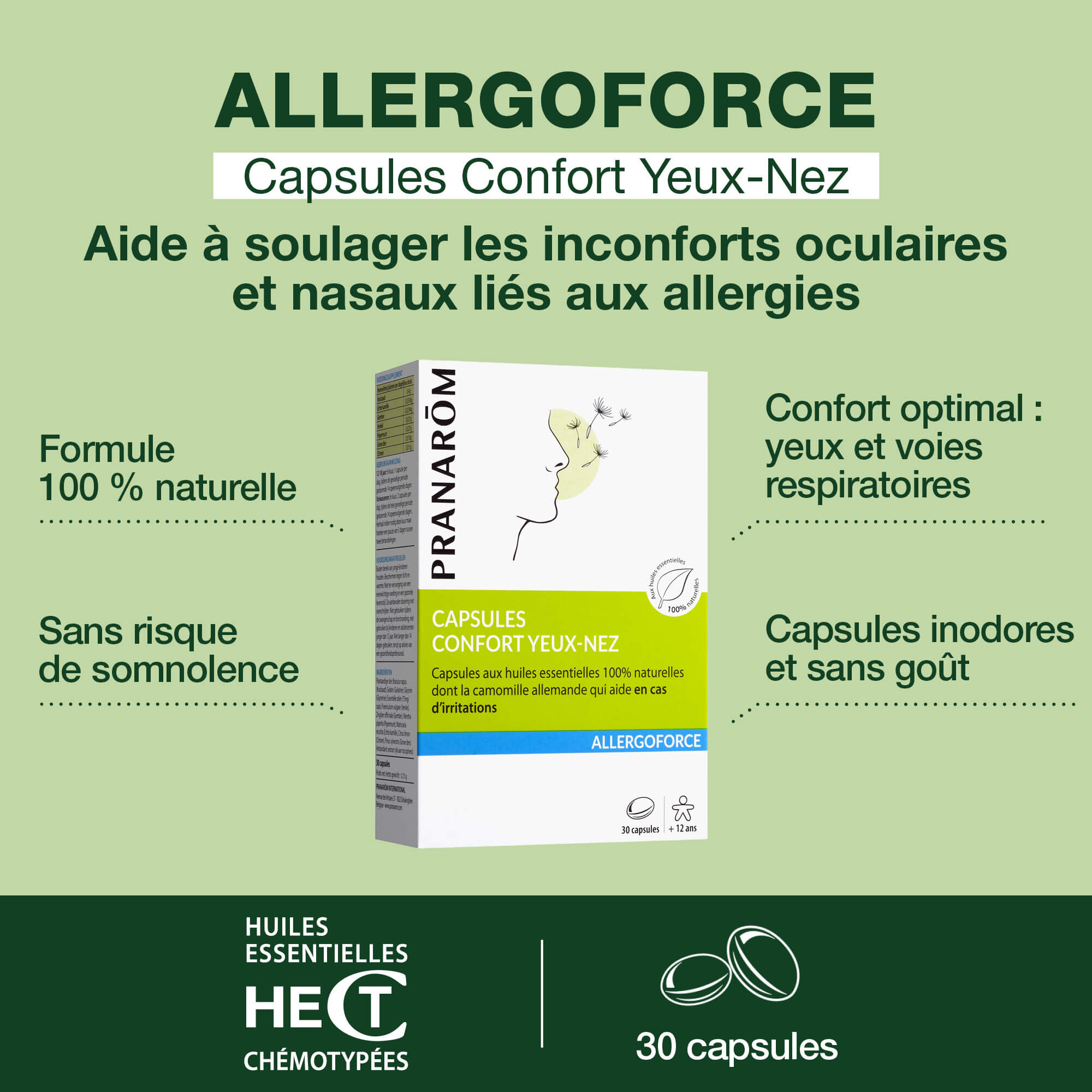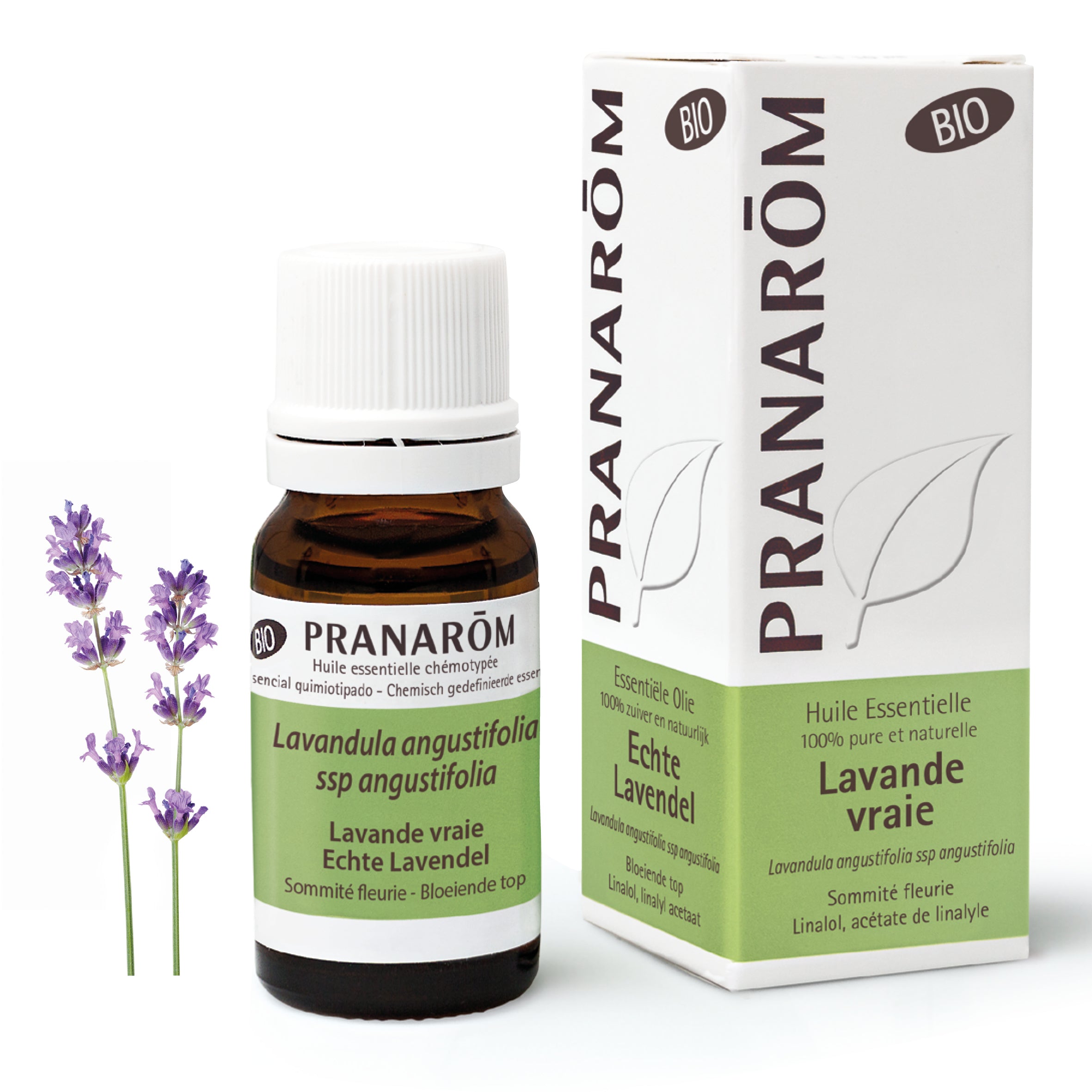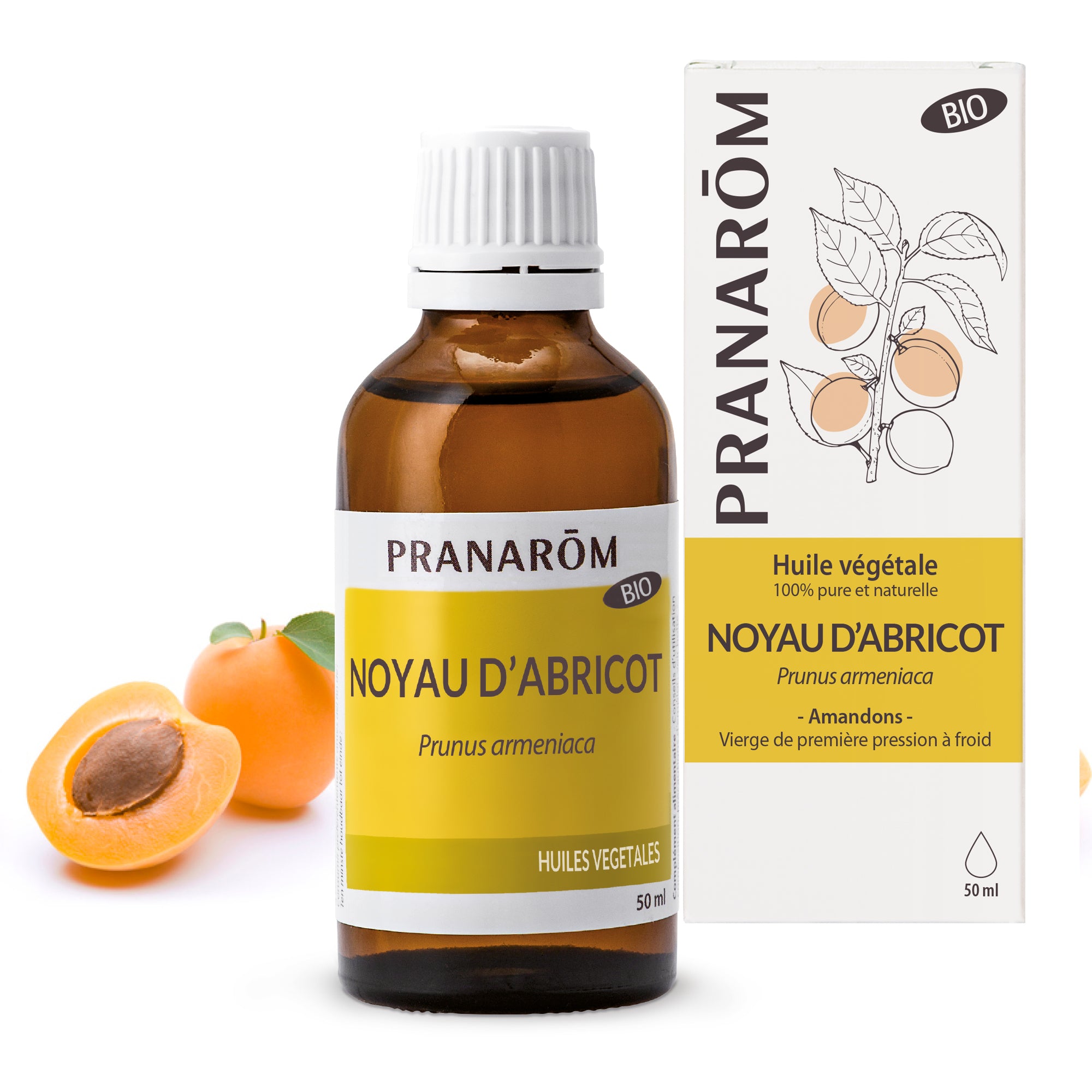Essential oils: a natural solution for pollen allergies
With the return of spring, pollen fills the air… and allergy symptoms resurface. Watery eyes, runny nose, and a cascade of sneezing: seasonal rhinitis, or hay fever, affects a growing number of people each year. Faced with this discomfort, essential oils offer a natural alternative to conventional treatments. Discover how to relieve pollen allergies with aromatherapy.
Understanding pollen allergies
Pollen allergies: what are they?
A pollen allergy is an excessive reaction of the immune system to a harmless substance: pollen. When it enters the respiratory tract, the body releases histamine, which triggers a cascade of symptoms: sneezing, stuffy nose, red or itchy eyes, coughing… These symptoms are sometimes exacerbated in people with a predisposition to allergies or a sensitized immune system.
The risk is increased in cases of pollution, stress, or chronic fatigue. The high concentration of pollen in the air during spring and early summer makes this period particularly difficult for allergy sufferers.
Common symptoms of pollen allergy to know
Allergic rhinitis blocked nose, runny nose, repeated sneezingallergic conjunctivitis Red eyes, itching, watery eyesAllergic asthma dry cough, difficulty breathingChronic fatigue due to disrupted sleepSkin signs irritations, tingling, or even eczema
How to use an essential oil effectively in case of pollen allergy?
For topical application: dilution is essential
Topical application of essential oils is a valuable approach for effectively relieving respiratory discomfort or allergy-related skin reactions. This targeted and gentle method allows you to quickly benefit from the properties of essential oils while providing immediate relief. To soothe congested airways or alleviate itchy skin, nothing beats a gentle, targeted massage. Here's a
- 2 drops of essential oil
true lavender , known for its calming, anti-inflammatory and regenerative properties. - 2 drops of essential oil
Roman chamomile , ideal for soothing allergic reactions and nervous tension. - 1 teaspoon of vegetable oil
apricot kernel Light, penetrating and perfectly suited to sensitive skin.
Mix the oils in the palm of your hand or in a small bottle. Gently massage onto the chest, upper back, or sinus area, avoiding the eye area. This can be repeated up to twice a day, especially during allergy attacks or periods of increased pollen exposure.
In addition to relieving symptoms, this ritual provides a welcome moment of relaxation, where one takes care of oneself consciously, in rhythm with breathing and aromatic scents.
In diffusion: purifying the ambient air
To clear the airways and prevent allergy attacks, diffusing essential oils is a simple, natural, and soothing solution. This gentle yet effective method purifies the air while providing immediate respiratory relief. Certain essential oils are particularly beneficial due to their anti-inflammatory, decongestant, and calming properties, which act directly on the typical symptoms of seasonal allergies.
Eucalyptus radiata essential oil, for example, is a must-have. It has remarkable expectorant and antiseptic properties, which help clear the respiratory system (nose, throat, etc.) while boosting the immune system. It is particularly well-tolerated, even by young children, making it a valuable daily ally during pollen season.
Fine lavender essential oil, also known as true lavender, offers both soothing and anti-inflammatory properties. It is ideal for calming nasal irritations, repeated sneezing, and feelings of respiratory discomfort. Its delicate fragrance also helps create a serene atmosphere, conducive to overall well-being.
As for Roman chamomile essential oil, it is renowned for its powerful calming effects on the nervous system and its anti-allergic potential. It helps to soothe the body's excessive reactions to allergens, notably by modulating inflammatory responses.
Used together in a diffuser, these essential oils help purify indoor air while supporting the body's fight against external aggressors. In addition to their physical benefits, they offer a true moment of tranquility, easing the daily lives of those prone to respiratory allergies.
Place 5 drops in a cold diffuser, let it diffuse for 20 minutes, 2 to 3 times a day. This helps prevent allergic reactions while creating a fresh and breathable atmosphere.
By inhalation: targeted and immediate action
This is one of the quickest and most effective methods for addressing respiratory issues during an allergy attack or breathing difficulties. Whether dry—simply by placing a few drops of essential oils on a handkerchief—or wet—by inhaling the steam from a bowl of hot water to which the oils have been added—this technique delivers the active ingredients directly to the nasal and bronchial mucous membranes, thus providing almost immediate relief.
With dry inhalation, aromatic molecules quickly enter the body through the sense of smell, bypassing the digestive system. This makes it an easy habit to adopt during the day, whether at home, at work, or on the go. Humid inhalation, on the other hand, is ideal in the evening or during periods of high congestion, as the warmth of the steam helps to loosen secretions and soothe inflammation in the respiratory tract.
Here is a
1 drop of peppermint + 1 drop of true lavender on a handkerchief: breathe deeply several times a day to calm attacks.
Specific cases: pregnant women and children
The use of essential oils must be particularly regulated among
Our natural products against pollen allergies
Allergoforce Eye and Nose Comfort Capsules – Pranarôm
These capsules 100% organic, these essential oils of Roman chamomile, ginger, peppermint, and fennel work on three levels: controlling inflammation, draining allergens, and decongesting respiratory mucous membranes. They do not cause drowsiness and can also be used to manage skin allergies.
Usage tips:
Adolescents (12-18 years old): 1 capsule/day during the sensitive periodAdults: 2 capsules per day for 14 days, with a 5-day break between courses.
Allergoforce Decongestant Nasal Spray – Pranarôm
Formulated with essential oils of tansy, Roman chamomile, black pepper, eucalyptus, and balsam fir, this decongestant nasal spray instantly relieves nasal congestion, sneezing, and itching. Suitable for pregnant and breastfeeding women, and children aged 3 and up (excluding those with a history of seizures).
Instructions for use:
Using essential oils daily can truly improve quality of life during pollen season. These aromatic extracts help to
To strengthen the


